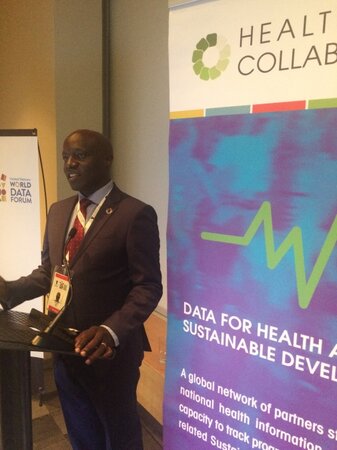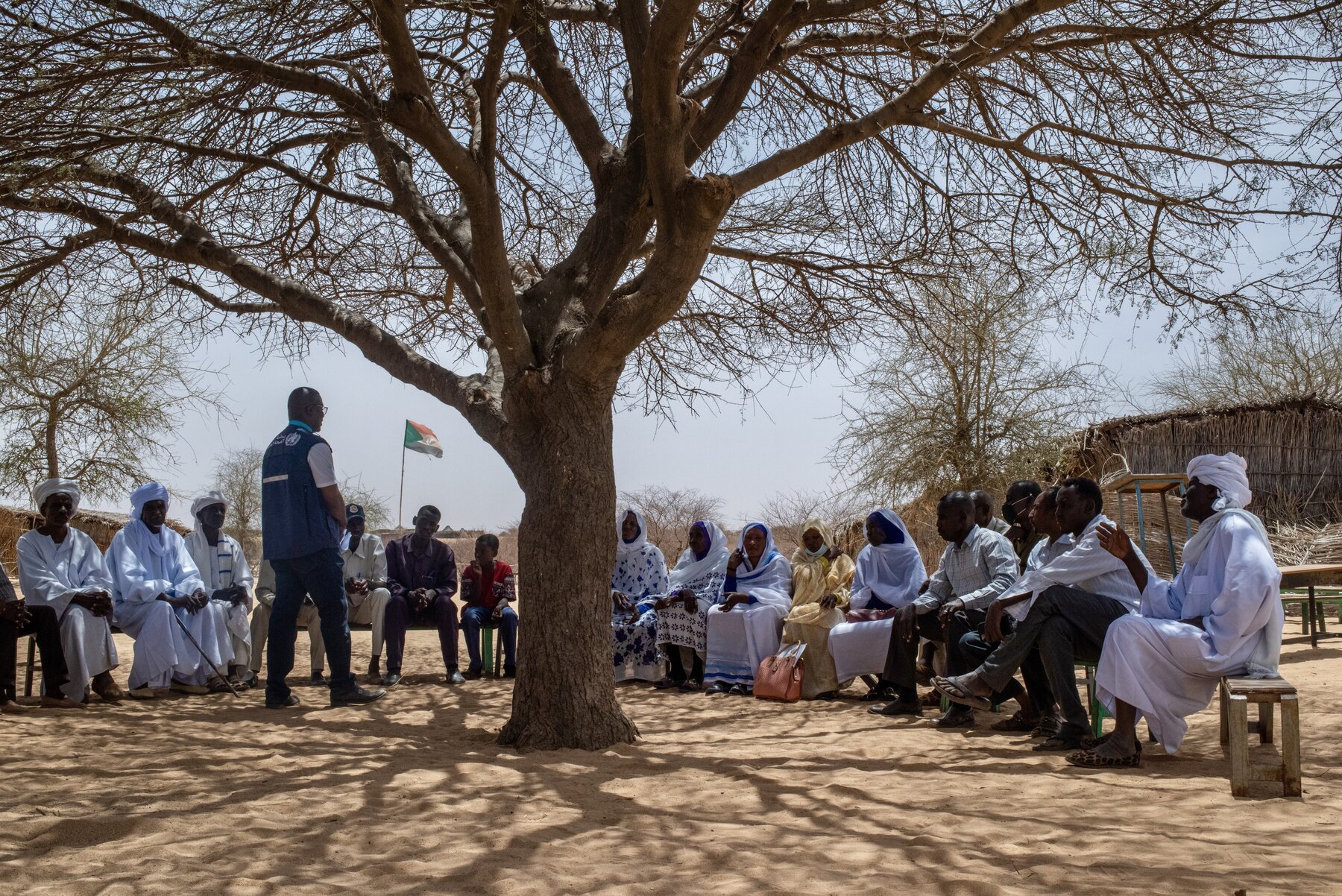Health Data Collaborative at the UN World Data Forum
20 January 2017

Attila Hancioglu, UNICEF; Pali Lehohla, Statistics South Africa; Alastair Robb, WHO; Philip Thigo, Deputy Presidents Office, Kenya; Maletela Tuoane-Nkhasi, World Bank Group
Over 1,000 data experts from more than 100 countries gathered at the first World Data Forum 15-18 January, including those from national statistical offices, the private sector, academia, international organizations, and civil society groups, as well as political leaders and sustainable development advocates. They shared a common objective: to mobilize the power of data and the opportunity of the data revolution.
Success of the 2030 Agenda for Sustainable Development will require more locally relevant data that directly addresses issues of everyday life. Rapid expansion in new sources of data is creating large-scale opportunities for innovative solutions, which need to be integrated with official data mechanisms and structures. This exciting time is also daunting for many emerging statistical and data systems, as currently capacitated and organized.
The well-attended session on the Health Data Collaborative at the World Data Forum showcased the value of carefully marshalled health data in a modern, multi-sectoral data landscape. It demonstrated that it is possible to overcome some of the major challenges facing the statistical community, even within the particularly messy and complex health sector. For example, the statistical system in South Africa builds on the strength of both its health and statistics sectors, and is able to use sub-national, disaggregated mortality data, as part of a wider compendium of health data, to demonstrate when and where health events are happening, and to whom. This has been a critical resource for better national and sub-national decisions.
 Panellists (from left to right): Attila Hancioglu, UNICEF; Pali Lehohla, Statistics South Africa; Alastair Robb, WHO; Philip Thigo, Deputy Presidents Office, Kenya; Maletela Tuoane-Nkhasi, World Bank Group (Photo by IISD/ENB | Kiara Worth)
Panellists (from left to right): Attila Hancioglu, UNICEF; Pali Lehohla, Statistics South Africa; Alastair Robb, WHO; Philip Thigo, Deputy Presidents Office, Kenya; Maletela Tuoane-Nkhasi, World Bank Group (Photo by IISD/ENB | Kiara Worth)
Not all countries are as able as South Africa to manage the multiple sources of health data. Weak national health data systems are further challenged by partners’ demands for disease- and programme-specific data.
The approach of the Health Data Collaborative will help overcome the inefficiencies within the disorganized context: by supporting countries to improve their technical and institutional capacities to generate, analyse and use quality health data and vital statistics; through coordinating existing efforts and investments; by rationalising global demand for data (by focusing on just 100 core indicators); and by harmonizing tools and guidance, which should improve the efficiency and effectiveness of partner support to countries.
The focus and impact of the approach will be at national and sub-national levels. Under government stewardship, Kenya has demonstrated how the HDC approach can galvanize a broad and inclusive partnership around a single health data platform. This is producing results, which over time will need to be quantified and documented.
“The HDC approach is crucial in helping countries improve their health information system,” said Dr Isabella Maina, who leads the Kenya HDC as head of the health sector monitoring and evaluation unit in the Ministry of Health. “Priorities will vary by country, but building a strong national M&E plan as the basis for aligned support from partners should be a common goal.”
There was much interest in the HDC from the broad and diverse audience. They are offering their skills, from the private sector, civil society, statistical offices and academia to further the national and global HDC approaches. This is welcome and their interest and that of national public health institutes will need to be fully tapped.
The HDC is leading the way, as an example of successful data collaboration for the modern data context. If the SDGs are to be met, including all the health-related SDGs, it will require a new approach to the production and use of social, economic, and health data, including data on lifestyle and vital statistics. For this to be possible the HDC will need to broaden its partnership to embrace partners from statistics, academia, civil society and business. Only through such an inclusive approach can we establish confidence in the data and help people understand the world within which they live.
Below are links to the presentations made at the panel session:
Philip Thigo (on behalf of the Kenya HDC and Ministry of Health)
Maletela Tuoane-Nkhasi (World Bank Group / Global Financing Facility)
Alastair Robb (Health Data Collaborative)

